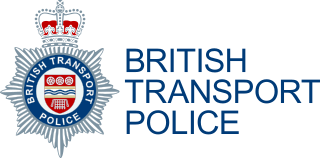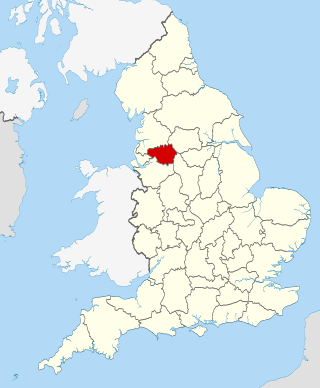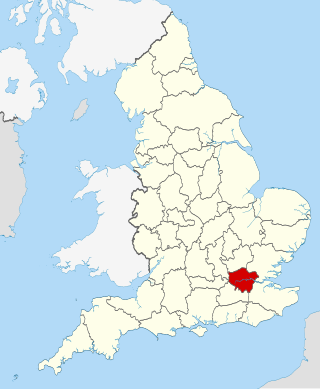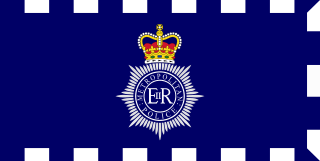Related Research Articles

London Trams, previously Tramlink and Croydon Tramlink, is a light rail tram system serving Croydon and surrounding areas in South London, England. It is the first operational tram system serving the London region since 1952. Tramlink is presently managed by London Trams, a public body part of Transport for London (TfL), and has been operated by FirstGroup since 2017. It is one of two light rail networks in Greater London, the other being the Docklands Light Railway. Tramlink is the fourth-busiest light rail network in the UK behind the Docklands Light Railway, Manchester Metrolink and Tyne and Wear Metro.

The history of public transport authorities in London details the various organisations that have been responsible for the public transport network in and around London, England - including buses, coaches, trams, trolleybuses, Docklands Light Railway, and the London Underground.

Transport for London (TfL) is a local government body responsible for most of the transport network in London, United Kingdom.

The London congestion charge is a fee charged on most cars and motor vehicles being driven within the Congestion Charge Zone (CCZ) in Central London between 7:00 am and 6:00 pm Monday to Friday, and between 12:00 noon and 6:00 pm Saturday and Sunday.

The Metropolitan Police Service (MPS), also officially known as the Metropolitan Police, which is still its common name, serves as the territorial police force responsible for law enforcement and crime prevention within the ceremonial county of Greater London. In addition, it is responsible for specialised tasks throughout the United Kingdom, such as UK counter-terrorism measures, and the protection of certain individuals, including the monarch, royal family, governmental officials, and other designated figures. Commonly referred to as the Met, it is also referred to as Scotland Yard or the Yard, after the location of its original headquarters in Great Scotland Yard, Whitehall in the 19th century. Its present headquarters are near there at New Scotland Yard on the Victoria Embankment.

British Transport Police is a national special police force that polices the railway network of England, Wales and Scotland. The force polices more than 10,000 miles of track and more than 3,000 stations and depots.

Electronic City is an information technology hub in Bangalore, India, located in Kengeri taluk. Spread over 800 acres (3.2 km²) near Konappana Agrahara and Doddathogur it houses a large number of electronic/IT industrial parks.

Transit police are specialized police agencies employed either by a common carrier, such as a transit district, railway, railroad, bus line, or another mass transit provider or municipality, county, district, or state.

The Royal Parks Constabulary (RPC) was the police force formerly responsible for the Royal Parks in London and a number of other locations in Greater London, England and Edinburgh, Scotland. Unlike most other police forces operating in England and Wales, the Royal Parks Constabulary did not report to the Home Office, but instead to the Department for Culture, Media and Sport, who provided funding for it through the Royal Parks Agency.

Buses have been used as a mode of public transport in London since 1829, when George Shillibeer started operating a horse-drawn omnibus service from Paddington to the City of London. In the decades since their introduction, the red London bus has become a symbol of the city.

London Buses is the subsidiary of Transport for London (TfL) that manages most bus services in London, England. It was formed following the Greater London Authority Act 1999 that transferred control of London Regional Transport (LRT) bus services to TfL, controlled by the Mayor of London.

Transport for Greater Manchester (TfGM) is a local government body responsible for co-ordinating transport services throughout Greater Manchester in North West England. It is an executive arm of the Greater Manchester Combined Authority (GMCA), the city region's administrative authority. The strategies and policies of Transport for Greater Manchester are set by the GMCA and its Greater Manchester Transport Committee (GMTC). The committee is made up of 33 councillors appointed from the ten Greater Manchester boroughs, as well as the Mayor of Greater Manchester.

London Streets is an arm of Transport for London (TfL) which is responsible for managing identified greatest through-routes in Greater London – 580 km of roads. It was known as TfL Street Management for many years until the start of the 2007 fiscal year.

The Metropolitan Special Constabulary (MSC) is the volunteer police force of the Metropolitan Police Service. It is one of three Special Constabularies operating within London, the others being part of the City of London Police and British Transport Police. The service was created over 190 years ago under the Special Constables Act 1831. As of November 2021 it consists of 1,450 officers, making it the largest in the UK.
Territorial Operations was a group of eighteen specialist Metropolitan Police units which were set up in 1986 as part of Sir Kenneth Newman's restructuring of the Metropolitan Police Service. The Territorial Operations units were designed to support the Metropolitan Police areas—while area-based policing was designed to decentralise the operations of New Scotland Yard, the TO units were intended to provide central operational and logistic support to Areas and divisional OCUs.
The Traffic Operational Command Unit (OCU), formally known as CO15, was the Road Policing Unit for the Metropolitan Police Service in Greater London, England.

London has an extensive and developed transport network which includes both public and private services. Journeys made by public transport systems account for 37% of London's journeys while private services accounted for 36% of journeys, walking 24% and cycling 2%,according to numbers from 2017. London's public transport network serves as the central hub for the United Kingdom in rail, air and road transport.

Cycling is a popular mode of transport and leisure activity within London, the capital city of the United Kingdom. Following a national decline in the 1960s of levels of utility cycling, cycling as a mode of everyday transport within London began a slow regrowth in the 1970s. This continued until the beginning of the 21st century, when levels began to increase significantly—during the period from 2000 to 2012, the number of daily journeys made by bicycle in Greater London doubled to 580,000. The growth in cycling can partly be attributed to the launch in 2010 by Transport for London (TfL) of a cycle hire system throughout the city's centre. By 2013, the scheme was attracting a monthly ridership of approximately 500,000, peaking at a million rides in July of that year. Health impact analyses have shown that London would benefit more from increased cycling and cycling infrastructure than other European cities.
Project Guardian is a joint initiative between British Transport Police (BTP), the Metropolitan Police Service, the City of London Police, and Transport for London (TfL), which aims to combat and increase reporting of sexual harassment on public transport in London. The initiative was inspired by a similar operation in Boston, Massachusetts, and began after a TfL survey revealed that 15% of women who used London's public transport had experienced some form of unwanted sexual behaviour, but that the overwhelming majority of incidents were not reported to the police. Project Guardian aimed to increase reporting and reduce instances of such behaviour.

Kingston upon Thames in South West London, England is served by two bus stations as well as a large number of on-street bus stops. Due to the Kingston one-way system, the various stops and bus stations are physically separate, however passengers are able to interchange between routes by walking through Kingston town centre, or walking from Kingston railway station.
References
- ↑ Bates, Laura (1 October 2013). "Project Guardian: making public transport safer for women". The Guardian . Retrieved 17 September 2014.